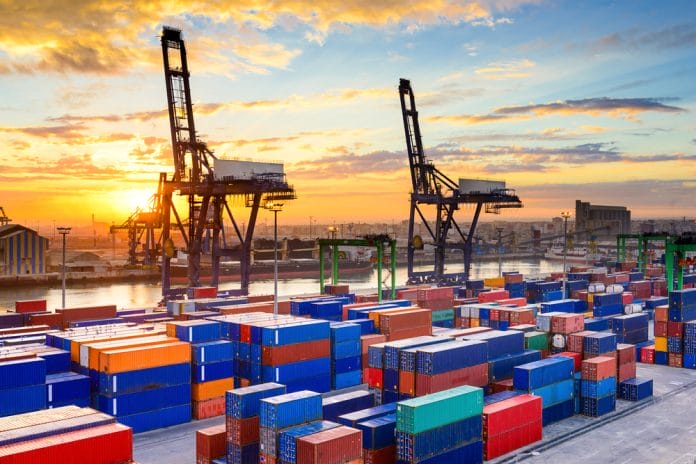Southeast Asia’s economic growth could improve next year, according to analysts and official projections, but wobbly macroeconomic conditions could cause uneven gains among countries.
One economist pointed out that trade-reliant countries are “not out of the woods” yet after a slowdown in exports stemming from the weak Chinese and global economies dragged down their performance this year.
The Singaporean government on Wednesday projected its growth for 2024 to come in between 1% and 3%, as it expects a recovery in global demand for electronics, one of the city-state’s core sectors. The International Monetary Fund in October had pegged the city-state’s growth next year at 2.1%.
The official forecast for 2024 shows better growth than the “around 1%” projection for 2023, but the country’s officials expressed cautious views on external factors.
“Looking ahead to 2024, GDP growth in major economies such as the U.S. and eurozone is likely to slow further in the first half of 2024 due to continued tight financial conditions,” Gabriel Lim, permanent secretary for Singapore’s Ministry of Trade and Industry, told an online briefing. “China’s growth is expected to ease in 2024 given sustained weaknesses in its property sector and domestic consumption.”
This year, economic slowdown due to the Fed’s monetary tightening and China’s lackluster recovery from the COVID crisis has weighed greatly on Southeast Asian economies, particularly through trade.
Singapore’s GDP figures for the July-September quarter, released Wednesday, showed its benchmark non-oil domestic exports declined 18.8% from a year earlier, although the headline GDP growth figures showed a recovery to 1.1%, from 0.5% in the second quarter.
Thailand and Indonesia also logged slower growth in the July-September period, respectively 1.5% and 4.9%, due to weak external demand. Both figures were worse than market expectations.
“We have clearly overestimated the health of Thailand’s economy this year, and are revising downwards our 2023 forecast from 2.8% to 2.5%,” wrote analysts at the research outfit BMI. It expects the country’s growth to pick up to 3.8% in 2024, saying, “The economy’s underperformance means that there is plenty of scope for catch-up growth.”
However, Malaysia, the Philippines and Vietnam, which all had reported relatively weak GDP figures in the April-June quarter, reported better figures in the third quarter, respectively growing 3.3%, 5.9% and 5.3% year-on-year.
HSBC, in a report this month, forecast collective growth for the “ASEAN-6” major economies of Indonesia, Malaysia, the Philippines, Singapore, Thailand and Vietnam to come in at 4.6% in 2024, up from 4% this year. Individually, prospects for this growth diverge for each country, from 2.4% for Singapore to 6.3% for Vietnam, according to the forecast.
“Export-oriented economies, particularly Singapore, Vietnam, Malaysia and Thailand, are not out of the woods,” Yun Liu, ASEAN economist at HSBC, told Nikkei Asia. “We expect only a gradual recovery in the global trade cycle in 2024. That said, when the trade cycle turns, regional economies will likely see a modest rebound in trade.”
In addition to the export slump, ASEAN has seen its share of inflation following Russia’s invasion of Ukraine last year, in line with the global trend. Stubborn increases in the cost of living have been flagged as a worry amid conflict in the Middle East between Israel and the Hamas militant group.
“In 2024, it is vital to keep inflation in check, continue public spending and eventually lower policy rates when appropriate to reduce the cost of doing business,” Domini Velasquez, chief economist at China Banking Corp. in Manila, told Nikkei Asia.
“We expect the sharp fall in inflation to date to boost purchasing power of households, though this is likely to be offset by drags from elsewhere,” Fitch Ratings’ Robert Sierra said of Indonesia. “If prices were to rise higher … growth would inevitably be lower and inflation higher next year.”
In an update last month, the ASEAN+3 Macroeconomic Research Office, a regional economic surveillance body, forecast that inflation in Southeast Asia, as well as China, Japan and South Korea — the +3 group — is expected to moderate to 2.6% in 2024, from this year’s estimate of 2.9%.
It warned, however, that the resurgence of global food and energy prices in recent months has sparked concerns of another spike in commodity prices, with the risk of higher inflation becoming more prominent.
“The growth outlook for ASEAN+3 is fraught with uncertainties,” AMRO said in its update. “A global energy shock in conjunction with a global economic slowdown would be a major blow to the region.”










